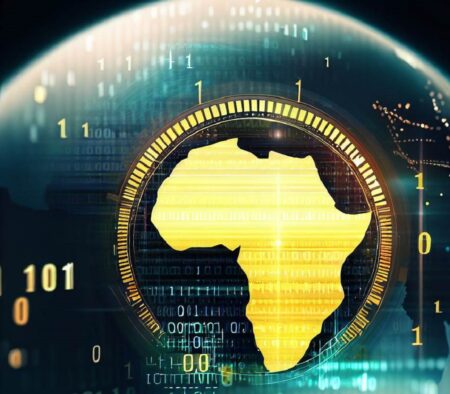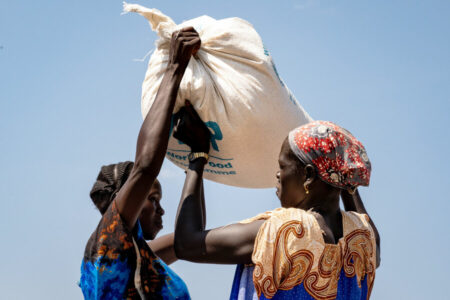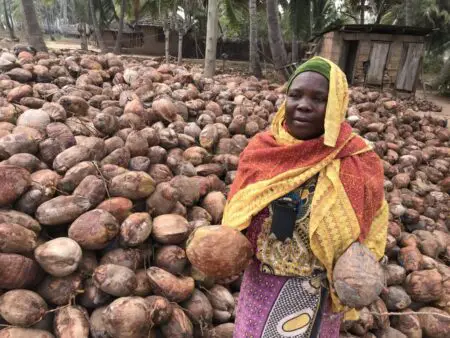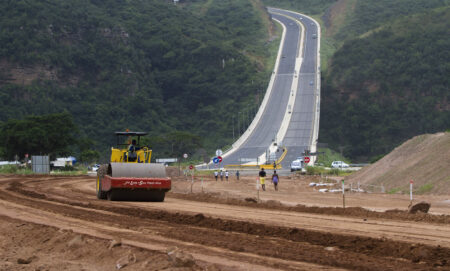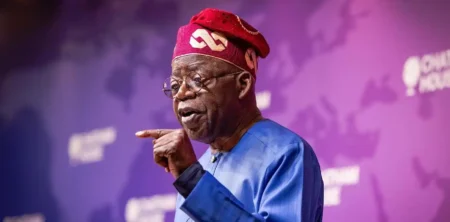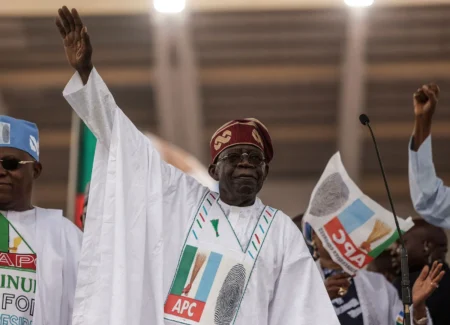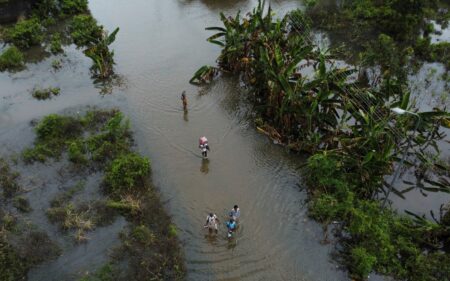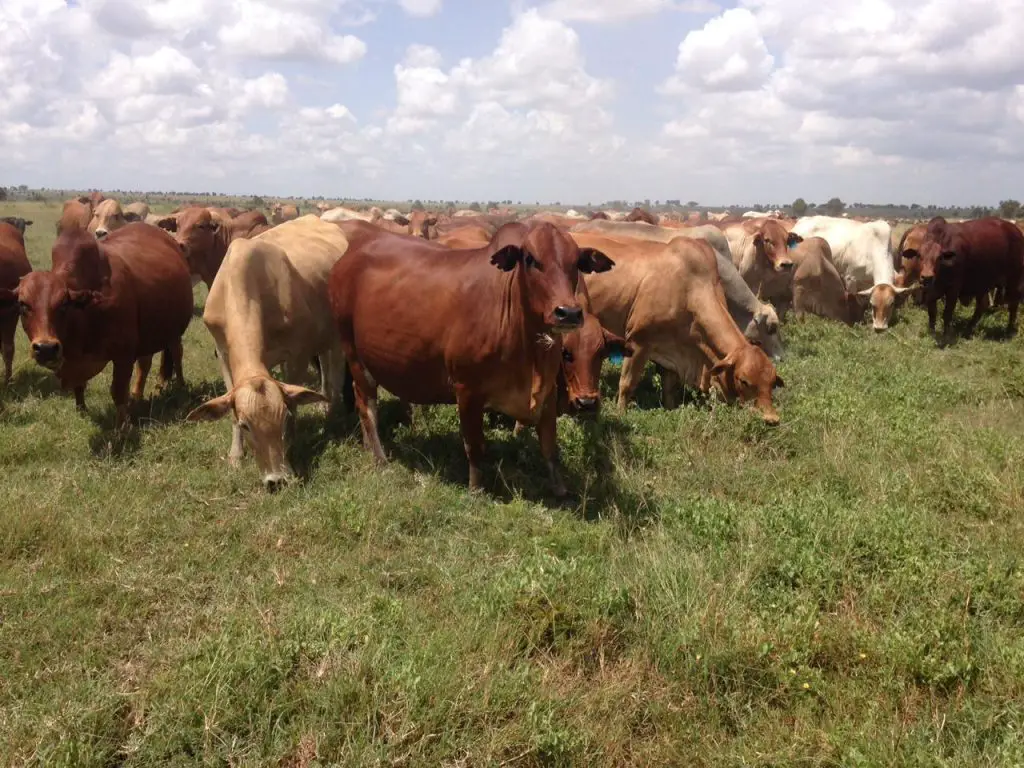- Wärtsilä Energy offers tips on how Africa can navigate energy transition and grid reliability
- Powering Africa: Africa’s Path to Universal Electricity Access
- Global investment trends at AIM Congress 2024: a spotlight on the keynote speakers
- South Africa’s deepening investment ties in South Sudan oil industry
- Agribusiness could drive Africa’s economic prosperity
- Dawood Al Shezawi: Why AIM Congress 2024 is the epicenter of global economic and cultural dialogues
- d.light’s 600,000 cookstoves project verified as top source of quality carbon credits
- Artificial intelligence (AI) could create a turning point for financial inclusion in Africa
Browsing: Nigeria
- Africa only accounts for one per cent of the global digital economy. The US, China, and Asia hold dominant positions at 68 per cent, 22 per cent, and 27 per cent respectively.
- Ralph Mupita, President and CEO of MTN cites untapped opportunities in Nigeria’s digital economy, tipping that its potential will double by 2050 to $145 billion.
- Businesses must adapt to Africa’s evolving digital economy and embrace key trends to seize the vast opportunities in the continent.
There is a substantial gap between the digital economy of developed and developing countries in Africa. At the moment, Africa makes up one per cent of the global digital economy, while the US, China, and Asia occupy the top three spots with 68 per cent, 22 per cent, and 27 per cent of the total. This demonstrates how crucial it is for Africa to close the digital divide and capitalize on its growth …
- Nigeria’s telecommunication sector has attracted a total investment of $75.6 billion since 2021.
- Kenya’s Safaricom is also among the success stories highlighting Africa’s true potential in the telcom industry.
- Today, there are over 270 million active mobile users in Africa.
Experts in Africa’s mobile industry are ready to crown a new king of the continent after investments in Nigeria’s telecommunication industry hit $75.6 billion since 2021. Aside from dominating Africa’s blockchain ecosystem, Nigeria is leading Africa’s steady digital transformation given its high adoption rate.
Africa is undergoing digital transformation, often times trailblazing the world. Todays era is bringing in innovations in several industries, but none have profited like Africa’s telecommunication industry. During the early stages of Africa’s “Digital” era, many telecoms embraced new technology that would connect and support new talent in Africa.
Africa’s growing telecom industry
According to Mordor Intelligence, Africa’s telecommunication industry will register 11.2 percent growth between …
- In West Africa, half of the 11.6 million individuals, who were set to receive food aid between June to August, will not get any support.
- Only about 6.2 million people will get support. They are mainly refugees, displaced individuals, malnourished children under the age of 5, pregnant and breastfeeding women, and girls.
- Populations at risk as spread across Burkina Faso, Chad, Central African Republic, Cameroon, Mali, Mauritania, Niger, and north-eastern Nigeria.
Millions of people grappling with West Africa’s hunger crisis will not receive emergency assistance between June and September due to limited funding. According to the World Food Programme (WFP), almost half of the 11.6 million individuals, who were set to receive food aid between June to August, will not get any assistance.
The shock revelation comes as WFP and authorities in the Sahel region struggle with the worst hunger crisis in 10 years.
Populations in Mali and Chad will …
Coconut remains one of the most important and useful palms globally. The global coconut products market could reach $31.1 billion by 2026. This follows its increasing use in food, beverage, cosmetics, and other industries. There are opportunities in the global coconut industry for the African government and the private sector to explore and earn foreign exchange.…
Population growth and economic development have necessitated speeding up and scaling up infrastructure development in Africa. Over 28 African nations have seen population growth of more than double in the last 30 years. The population of 26 other African countries will quadruple over the next 30 years. Consequently, funding for the continent’s infrastructure has become essential.…
As the 16th president of Nigeria, Bola Ahmed Tinubu has inherited an economy grappling with record-high inflation, enduring unemployment, extreme poverty, crumbling infrastructure and high levels of insecurity. However, Nigeria’s debt situation is a sore thumb among these challenges.
Nigeria’s external debt stock stood at US$41.69 billion in 2022. Multilateral lenders accounted for almost half of this figure, with Eurobonds taking about 38 per cent of Nigeria’s external debt. China’s Exim Bank accounts for US$4.3 billion, or 86 per cent of the $5 billion in bilateral debt.…
In his inaugural address on May 29, President Bola Tinubu stated his plans to revive Nigeria’s ailing economy. After being sworn in as Nigeria’s 16th President, Tinubu expressed his immediate objective to achieve higher GDP of not less than 6 per cent annually and a significant reduction in the unemployment rate.…
At his inauguration, Nigeria’s new president, Bola Ahmed Tinubu, announced that his administration would do away with the fuel subsidy. The announcement resulted in a spark in prices and long queues in Nigeria as people rushed to buy fuel before the price increase when the policy took effect on July 1.
When the policy to remove Nigeria’s fuel subsidy takes effect, fuel prices in Nigeria are expected to jump from the official pump price of $0.4 to between $0.76 and $1.18. According to the United Nations, Nigeria’s rise in fuel prices will have widespread economic ramifications for over 133 million citizens plagued by multidimensional poverty.…
- Climate Change-related flooding saw large swathes of farmlands and settlement areas in Nigeria’s coastal Niger Delta flooded by December 2022.
- Boko Haram terrorists, bandits, and armed herders have forced at least 78,000 farmers to abandon their farmland.
- Over the past eight years, an estimated 6,000 Benue people reported killed while two million farmers were displaced.
Nigeria is battling a perfect storm with a double whammy of climate change and conflict exacerbating the country’s food crisis. Currently an estimated 25.3 million people in Nigeria are facing food crisis partly worsened by the ongoing flooding throughout the country.
As of December 2022, large swathes of farmland and settlements in Nigeria’s coastal Niger Delta region flood. The flooding saw the closure of schools, leaving hundreds of children out of learning centres as the disaster took a toll.
Climate change worsening Nigeria’s food crisis
Nigeria, which with 222.2 million people is Africa’s most populous …
- Financing will create more jobs, and reduce national expenditure on the importation of milk and dairy products. It will also improve the nutritional status of Nigerians.
- The credit scheme also seeks to reduce protracted conflict between farmers and herders as well as drive investments in the industry.
- Ministry of Agriculture says plan will improve security and foster harmonious existence between farmers and herders.
Livestock farmers across Nigeria are set to benefit from a $10.8 million credit scheme that seeks to enhance their business value chains and attract more investors in the sector.
According to the Minister of Agriculture and Rural Development, Mohammad Mahmood Abubakar, the $10.8 million credit scheme targeting livestock farmers, will be run by the Bank of Agriculture.
Mr Abubakar said Nigeria is committed to reforming the livestock sector with notable programmes such as the National Livestock Transformation Plan, and Livestock Productivity Resilience and Support Plan, among others.…





